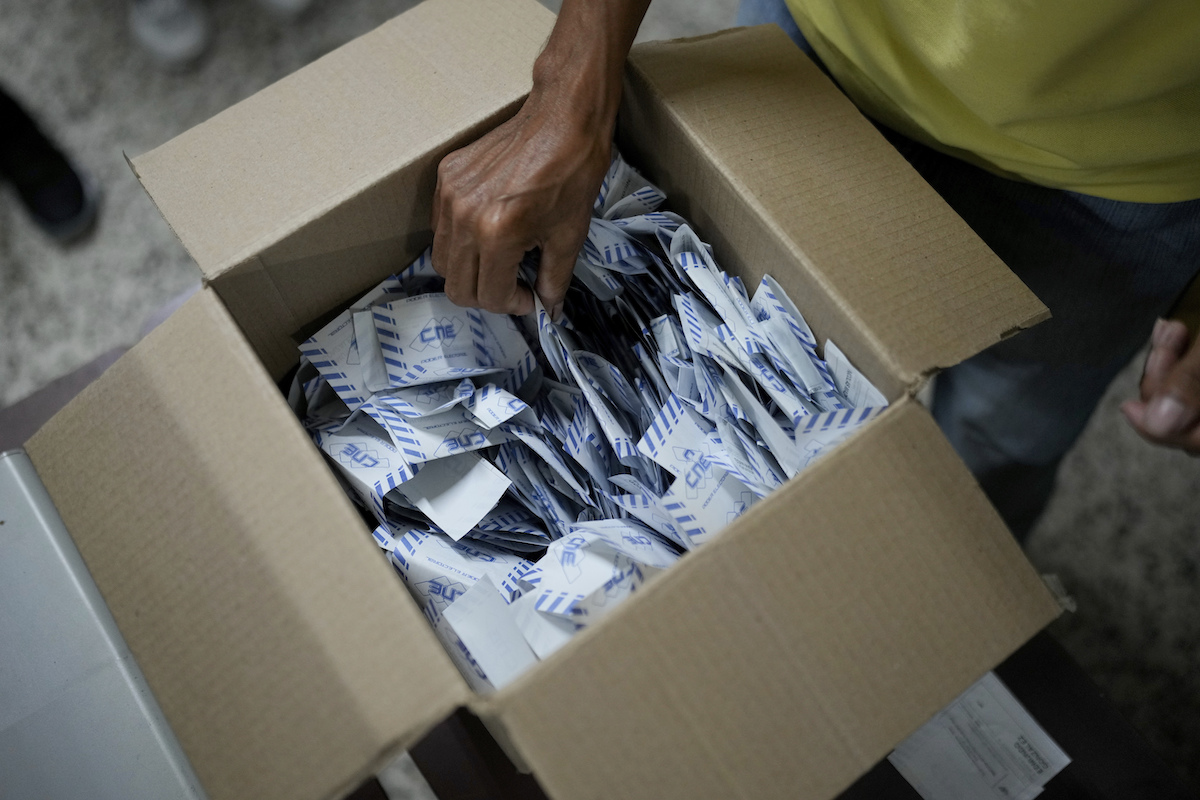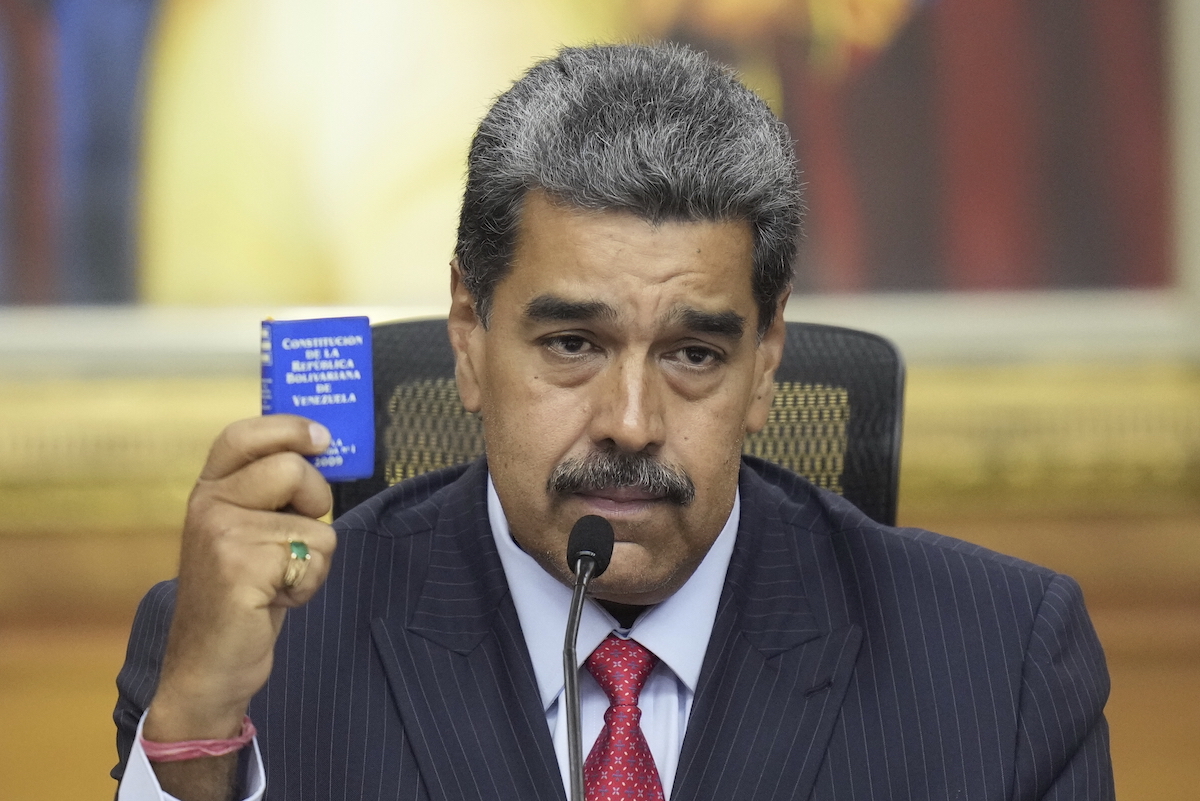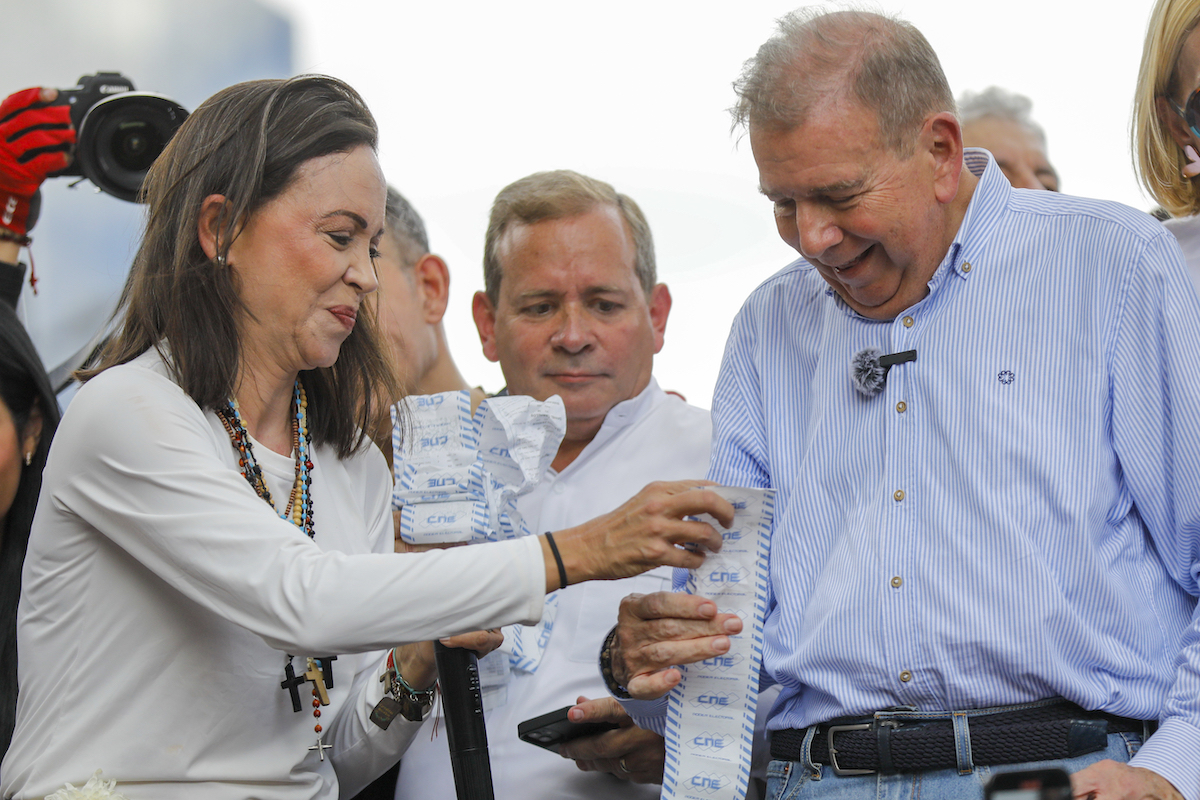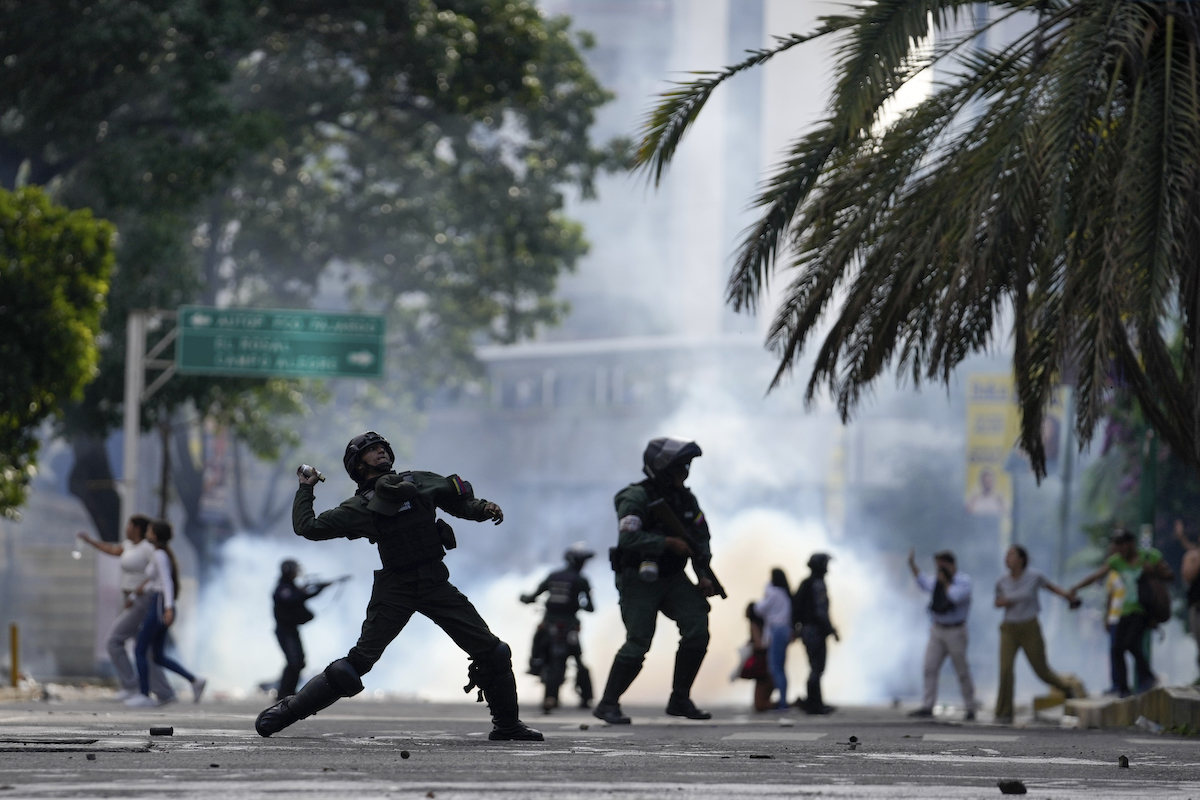Venezuela’s government-controlled National Electoral Council said that President Nicolás Maduro won reelection July 28, but the U.S. government and other world leaders are calling for more transparency and have said evidence shows Maduro lost.
The National Electoral Council has not released vote counts by precincts, as Venezuelan law requires. Maduro’s main challenger, Edmundo González Urrutia, has also declared victory. González Urrutia’s party says it has at least 80% of the vote tallies, known as “actas,” and that they show he won at least 67% of the vote.
U.S. Secretary of State Antony Blinken said Aug. 1 that the vote processing and results announcement by the National Electoral Council “were deeply flawed, yielding an announced outcome that does not represent the will of the Venezuelan people.”
“In the days since the election, we have consulted widely with partners and allies around the world, and while countries have taken different approaches in responding, none have concluded that Nicolás Maduro received the most votes this election,” Blinken said. “Given the overwhelming evidence, it is clear to the United States and, most importantly, to the Venezuelan people that Edmundo González Urrutia won the most votes in Venezuela’s July 28 presidential election.”
Florida’s Republican U.S. senators blamed President Joe Biden’s administration for Maduro claiming victory. Florida has the biggest Venezuelan population in the U.S.
“Maduro has stolen another election from the Venezuelan people & the Biden-Harris admin helped him do it by fueling his power with sanctions relief & appeasement,” Sen. Rick Scott, R-Fla., said July 29 in an X post.
Sen. Marco Rubio, R-Fla., also posted July 29 on X: “Biden & Harris broadly eased Trump sanctions on Maduro regime as part of a ‘deal’ for elections in #Venezuela,” adding that the election “was a complete fraud.”
Former President Donald Trump said July 31 on Truth Social that “Kamala Harris should never have taken the Trump Oil Sanctions off Maduro.” Trump also said that the promise of free and fair elections was “fake” and that Venezuelans’ “blood” was on Harris and Biden’s hands.
The Biden administration eased sanctions on Venezuela after the Venezuelan government agreed with opposition leaders to hold elections this year. But Latin America experts we spoke to said it’s simplistic and inaccurate to imply that the sanctions lifting helped Maduro stay in power.
“An easy explanation saying, ‘Well, if we had only kept sanctions, none of this would have happened,’ that’s just simply not true,” said Eduardo Gamarra, a Florida International University political science professor.
Gamarra said statements like these ignore a broader, more complicated context. For example, Maduro remained in power despite tougher sanctions under Trump.

Electoral officials tally votes July 28, 2024 after polls closed for presidential elections in Caracas, Venezuela. (AP)
Biden eased some sanctions after it Venezuela agreed to hold elections
In October 2023, Maduro’s government and the main opposition alliance signed the Barbados Agreement, committing to hold open and fair elections in 2024 with independent international observers. The U.S., in exchange, relieved some Trump-era sanctions for oil and gas companies, warning that the sanctions would return if Maduro did not uphold the agreement.
At the time, the Biden administration was under domestic pressure to increase oil production. In 2023, U.S. oil reserves were at their lowest level since 1983, federal energy data shows. Oil companies in the U.S., such as Chevron, that the sanctions affected, also pressured Biden to lift them, Gamarra said. With the lifting of sanctions, U.S. companies could pump oil from Venezuela again.
In April, the U.S. reimposed some sanctions on Venezuela after it said the government fell short of fulfilling some of the commitments it agreed to in the Barbados Agreement. For example, Maria Corina Machado, the opposition leader, and an alternative opposition candidate, were banned from running for president.

Venezuelan President Nicolas Maduro holds a small copy of the constitution July 31, 2024, as he gives a news conference at Miraflores presidential palace in Caracas, Venezuela. (AP)
Maduro’s government says he won reelection. Did lifting sanctions affect the outcome?
Despite the disputed election results, Latin America experts partly credited the Biden administration’s sanction policy for Venezuela holding an election with an opposition candidate.
Gamarra presented two possible scenarios that could have unfolded without the Barbados Agreement and the U.S. negotiations: Maduro’s government wouldn’t have held elections, or would have held elections without a genuine competitor.
“Without external incentives the Maduro government might not have allowed González to run at all,” said Rebecca Hanson, an assistant professor at the Center for Latin American Studies at the University of Florida.
Hanson and other Latin America experts also noted that a usually fragmented opposition coalesced during these elections. Without this, “it would be much more difficult to know if election results had been manipulated,” Hanson said.
The Barbados Agreement also “committed the (Venezuelan) government to enter a terrain where they were forced to reveal how uncompetitive they were,” said Javier Corrales, a political science professor at Amherst College.
The Biden administration provided the “best option” Venezuela’s opposition has had in 25 years to oust Maduro from political power in a “democratic way,” Gamarra said.
Alejandro Velasco, a New York University Latin American history associate professor, said, “What has been happening over the last year is that the government has seen an opposition which has surprised it by being very united, very cohesive, many of the things that the opposition has not been able to achieve in the last 10 years.”
Venezuela’s opposition has had a history of boycotting elections and having internal fragmentation.

Opposition leader Maria Corina Machado and opposition candidate Edmundo González Urrutia hold up vote tally sheets, July 30, 2024, during a protest against the official presidential election results in Caracas, Venezuela. (AP)
The U.S. has imposed sanctions on Venezuela for decades, Maduro remains in office
The U.S. has had fraught diplomatic relations with Venezuela for decades, and started imposing sanctions in 2006, according to the Congressional Research Service. Trump increased and expanded the sanctions, targeting not just specific people, but also industries, University of Illinois political science professor Damarys Canache wrote in January.
Over the past decade, Venezuelans have faced hyperinflation; food and medicine shortages; and human rights abuses. As a result, since 2014 nearly 8 million people have fled the country, according to the United Nations.
Under Trump’s sanctions, Maduro had no incentive to conduct free and fair elections, Velasco said.
Experts said it’s common for countries to negotiate or pressure other countries via sanctions. The U.S. has done it, with different levels of success with Cuba, Iraq, Nicaragua and the Balkans.

Police hurdle a gas canister at protesters demonstrating against the official election results declaring President Nicolas Maduro’s reelection, the day after the vote in Caracas Venezuela, July 29, 2024. (AP)
What’s next for Venezuela?
In the days after the elections, Venezuelans have taken to the streets to protest against the Maduro government. At least 11 people have died and more than 700 have been detained, according to Foro Penal, a Venezuelan legal assistance nonprofit.
In an opinion piece published by The Wall Street Journal, Machado said she is in hiding and fearing for her life.
Blinken in his statement said that threats to arrest opposition leaders, including Machado, “are an undemocratic attempt to repress political participation and retain power.” He called on Venezuelan parties to begin talks for a peaceful transition.
“We fully support the process of re-establishing democratic norms in Venezuela and stand ready to consider ways to bolster it jointly with our international partners,” Blinken said.